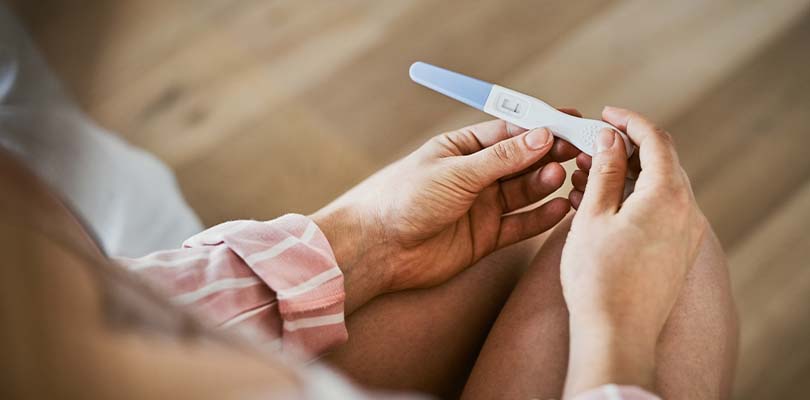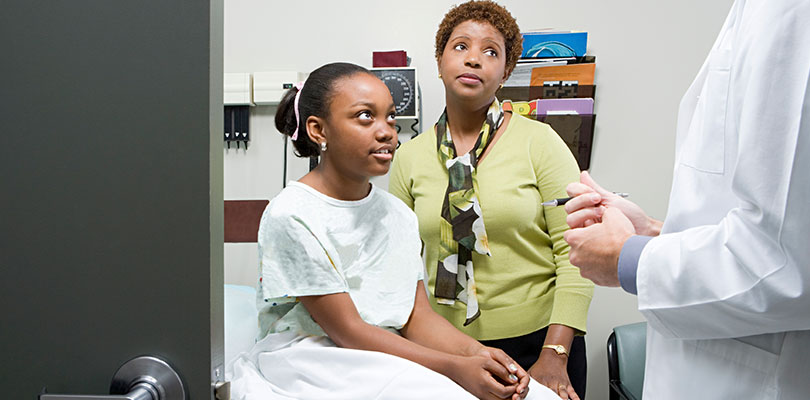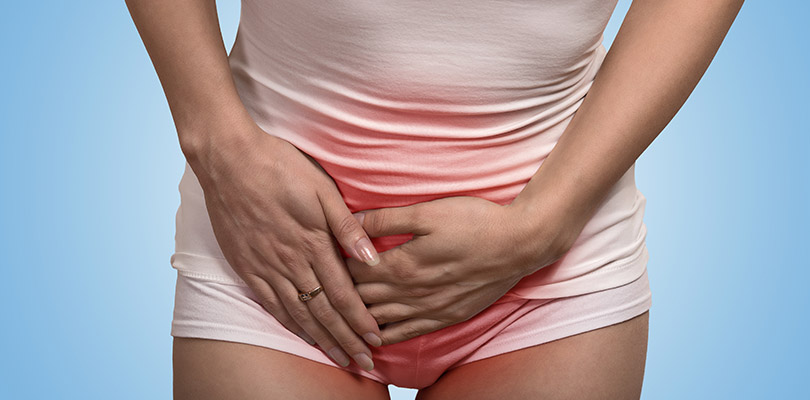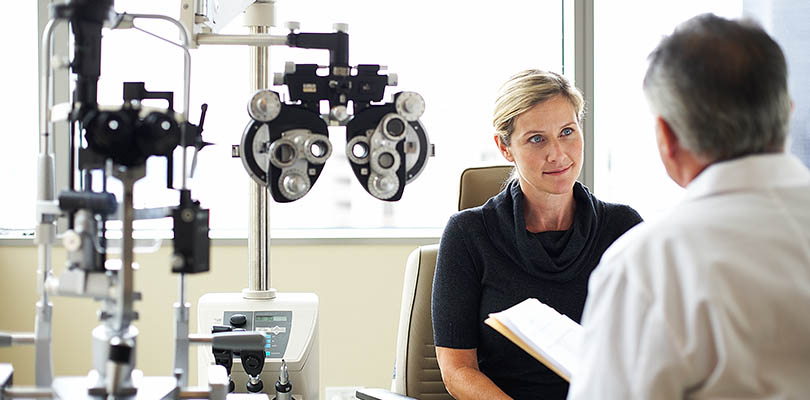The Common Causes of Infertility
If you are longing to have a child but are unable to conceive, seeing the cute smiles and hearing the infectious giggles of the kids around you can be unbearable. Knowing that you are not alone on your infertility journey may give you some relief, as estimates reveal that approximately 48.5 million couples around the world currently experience infertility issues. In this article we take a look at both female and male infertility issues and give a brief overview of various treatment options available to help guide you through this difficult time in your life.
What Is Infertility?
When a couple has regular unprotected sexual intercourse for 12 months without conceiving, they are considered to be infertile. In women over the age of 35, infertility is diagnosed after trying to conceive for six months without pregnancy. Infertility may be caused by the inability of one partner to contribute to a pregnancy or may happen when the woman cannot carry a pregnancy long enough to enable childbirth.
Primary infertility refers to a woman who has never been able to conceive. On the other hand, if a woman has had at least one successful conception before being diagnosed as infertile, it is known as secondary infertility.
Men can also have infertility issues. According to studies, infertility cases can be equally attributed to men and women. Further, in about 20% of cases, the underlying cause of infertility remains unknown.
Causes of Female Infertility
Several underlying issues may affect a woman’s ability to conceive.
Damaged Fallopian Tubes
Fallopian tubes are responsible for carrying fertilized eggs from the ovary to the uterus where the embryo develops. Pelvic infections, pelvic tuberculosis, or pelvic surgery may inflict damage to the fallopian tube. This, in turn, prevents the sperm from fertilizing the eggs in the tube, which can lead to infertility.
Hormonal Problems
Another leading cause of infertility in women is hormonal disorders. If a woman is unable to produce reproductive hormones including estrogen and progesterone that are responsible for the release of eggs from the ovary, infertility may result. A change in menstrual cycle length (more than 35 days or less than 21 days) may signal a hormonal disorder.
Uterine or Cervical Disorders
Benign polyps or tumors may affect the process of fertilization in the uterus resulting in infertility. Additionally, endometriosis or inflammation in the uterus may also disrupt fertilization. A female uterus may also have several birth defects such as an abnormal size or shape that can make it difficult to conceive and/or carry a pregnancy. Further, narrowing of the cervical canal may hinder the sperm from traveling and fertilizing an egg.
Premature Ovarian Failure
This condition is associated with the loss of eggs in the ovary due to an underlying genetic condition, or can be triggered by medical procedures such as chemotherapy. Premature ovarian failure stops the production of eggs in the ovary resulting in early menopause in women under the age of 40.
Risk Factors for Female Infertility
Some factors are directly attributed to the increased risk of infertility.
Age
With increasing age, the quality and quantity of eggs start to decline. After the mid-30s, the number of eggs reduces at a faster rate. This, combined with other aging factors, makes pregnancy more difficult and increases the chance of miscarriage if conception does occur.
Smoking
Smoking can damage the fallopian tubes and cervix, and also increases the risk of miscarriage. It can have an adverse effect on the ovaries and can trigger early menopause by depleting eggs. Quitting smoking is crucial to increase the chance of conception.
Body Weight
Neither being overweight or underweight is ideal for pregnancy. Maintaining an ideal body weight to increase the quality and frequency of ovulation may help to increase the likelihood of conception.
Plant-based food is a popular diet change for personal and health preferences. Find out all the ways to can incorporate plant-based foods in your diet.
Sexual History
Having unprotected sex with multiple partners increases the risk of acquiring STDs that can harm the fallopian tube and contribute to infertility.
Drinking Alcohol
Drinking alcohol can affect ovulation. Avoiding or minimizing alcohol consumption can increase the chance of conception.
Treatment for Female Infertility
Various treatments exist for female infertility and here are some of the options.
Laparoscopy
Laparoscopy is performed to repair reproductive organs that have been damaged due to pelvic or tubal diseases. It has been proven effective in treating endometriosis, ovarian cysts, scar tissue and blocked fallopian tubes.
Hysteroscopy
In this procedure, the doctor inserts a hysteroscope in the uterus through the cervix. It can be used to treat blocked fallopian tubes, fibroid tumors, scar tissue and polyps.
Intrauterine Insemination (IUI)
In this procedure the doctor places the semen sample into the uterus after rinsing it with a special solution. IUI is accompanied by taking medication, which increases the likelihood of releasing quality eggs.
In Vitro Fertilization (IVF)
In vitro fertilization (IVF) is the most effective form of assisted pregnancy. It is a procedure in which matured eggs are collected from the ovary and fertilized by a healthy sperm in a petri dish. After fertilization, the embryo is placed in a uterus. It usually takes three weeks for the completion of a full cycle of IVF.
The process may be conducted by using the eggs and sperm of the expecting couple. But, if that option is not available, the sperm and eggs can be collected from a donor. The success of IVF depends on numerous factors including age and the underlying cause of infertility.
This type of assisted fertilization can be expensive, invasive and time consuming. Sometimes to increase the odds, doctors place more than one embryo in the uterus. The likelihood of having multiple pregnancies is higher than a natural pregnancy with IVF.
Medication
The doctor may prescribe medication, including clomiphene citrate and gonadotropins, when there are issues with ovulation.
Causes of Male Infertility
Male infertility can be attributed to a number of factors, including:
- Low sperm count
- Lack of sperm motility
- Irregular shape of sperm
The problems in sperm can be caused by various underlying conditions, including:
- Testicular infection/cancer
- Hormonal disorders
- Ejaculation problems
- Genetic disorders
- Mumps
- Exposure to radiation
- Cystic fibrosis
- Unsupervised medication use
- Obesity
- Excessive alcohol consumption
- Diabetes, anemia and thyroid problems
- Older age (above 40)
Treatment for Male Infertility
Based on medical history and overall health condition, the doctor may prescribe any of the following treatments:
- Surgery
- Treating infections
- Treating erectile dysfunction
- Assisted reproductive technology (including IUI and/or IVF)
- Hormone therapy and medication
In Conclusion
Certain lifestyle changes can reduce the risk of infertility. Managing your stress, maintaining a healthy diet, giving up smoking and alcohol, and exercising regularly can improve the quality of your ovulation, and increase the chance of conception. For couples dealing with infertility issues, there are various treatment options available that are now quite safe and accessible to help you achieve your dream of starting a family.







